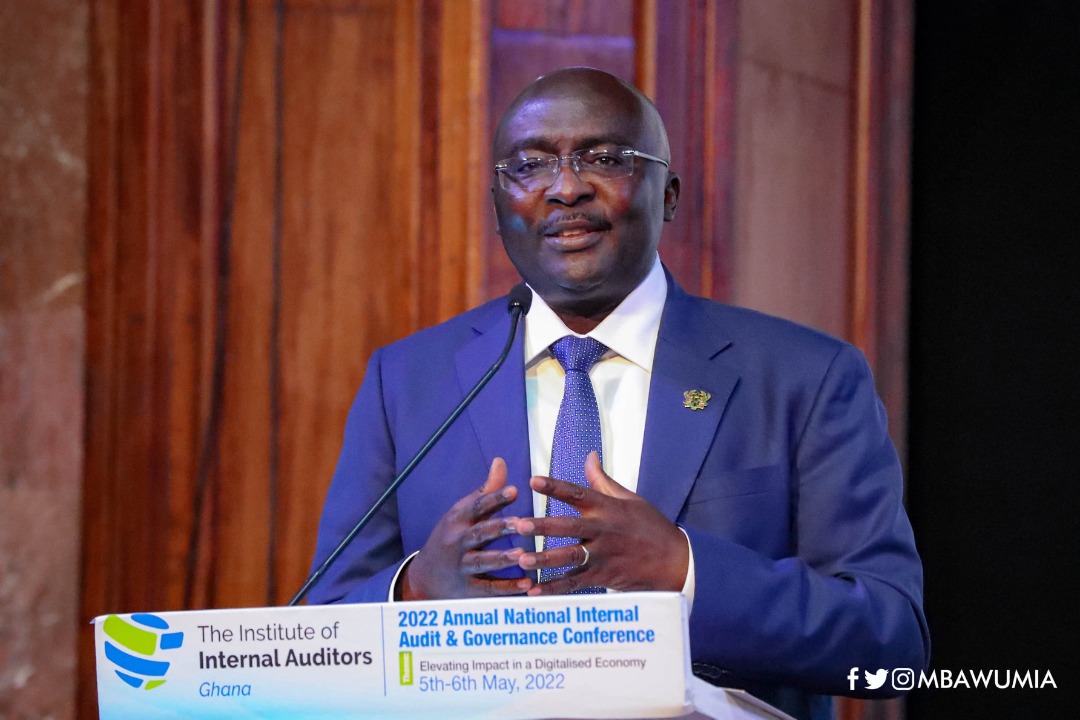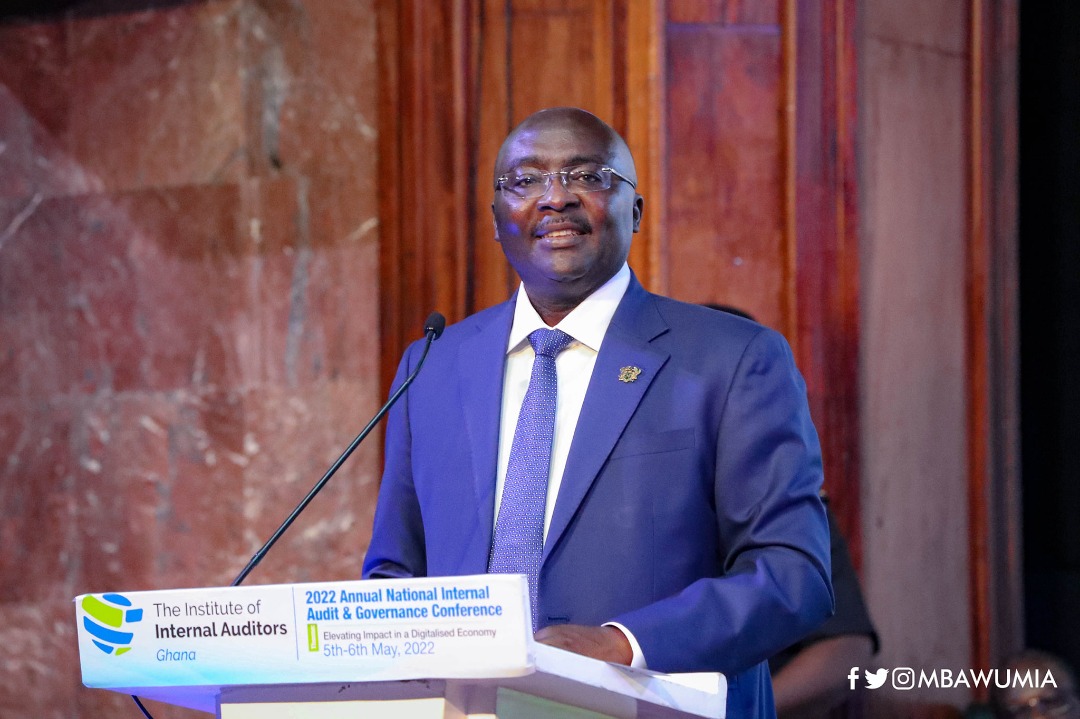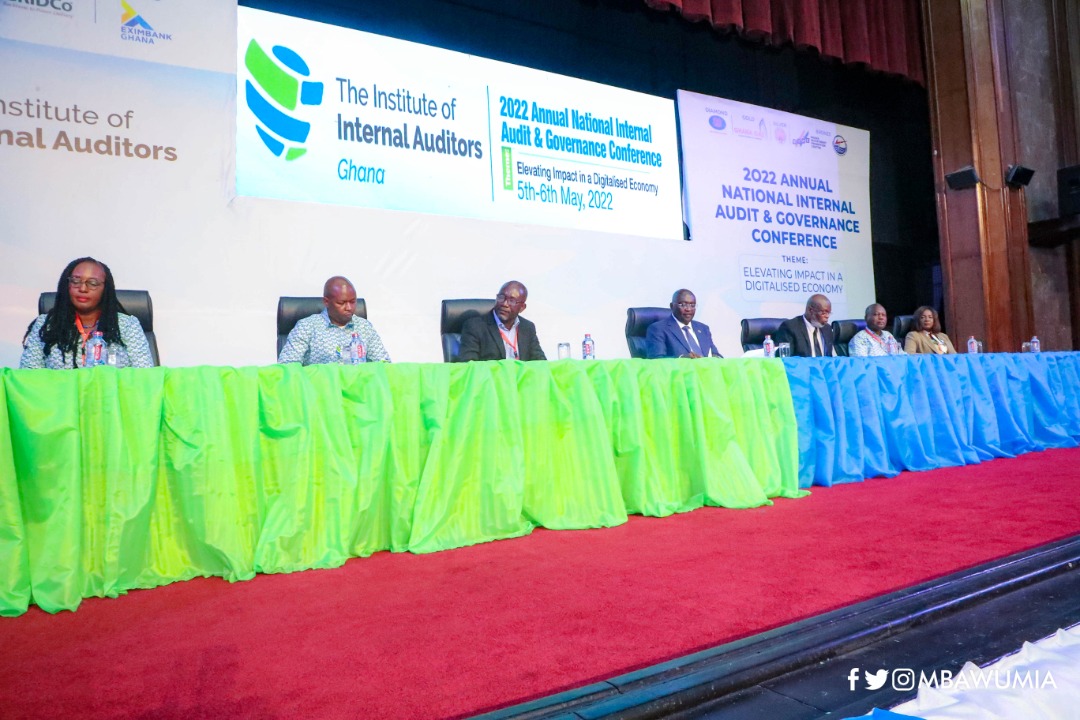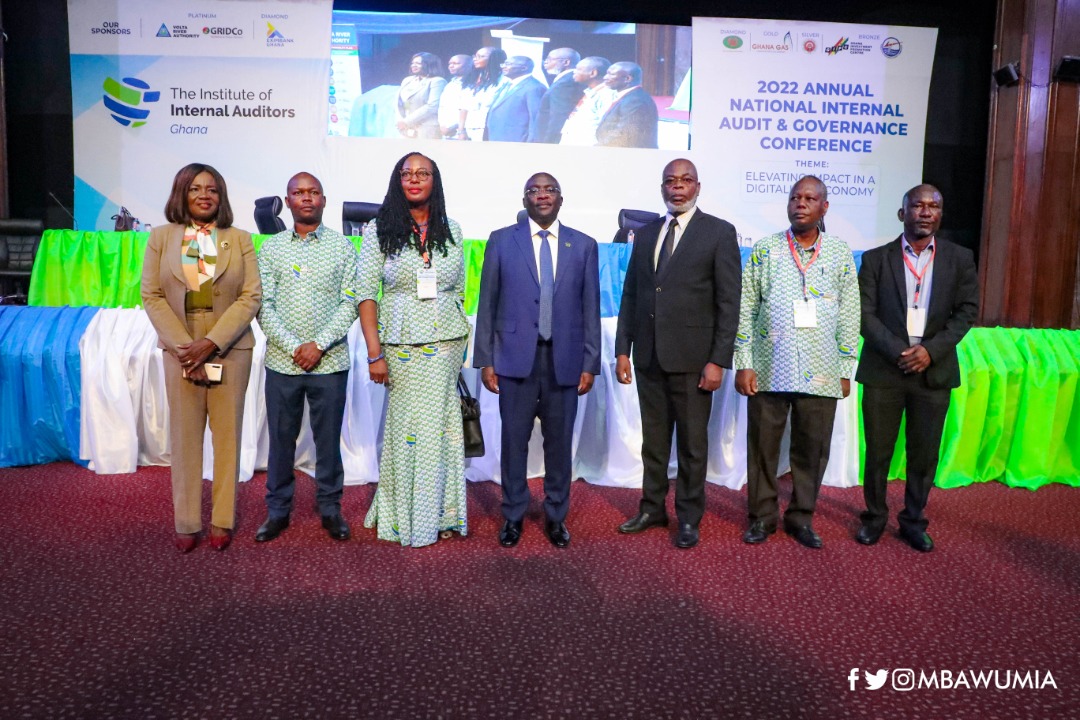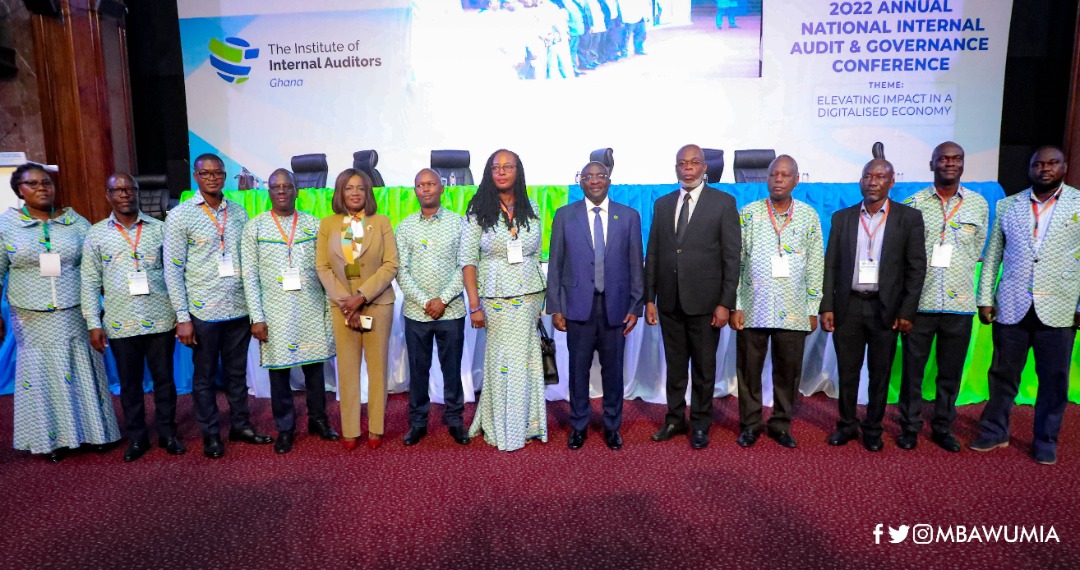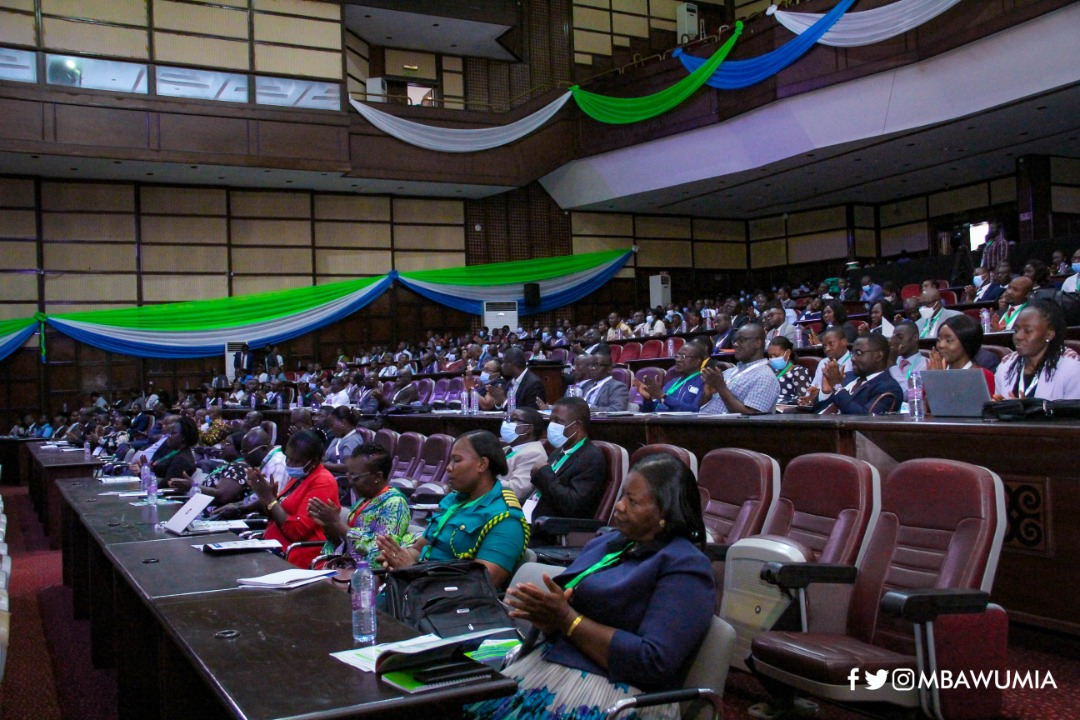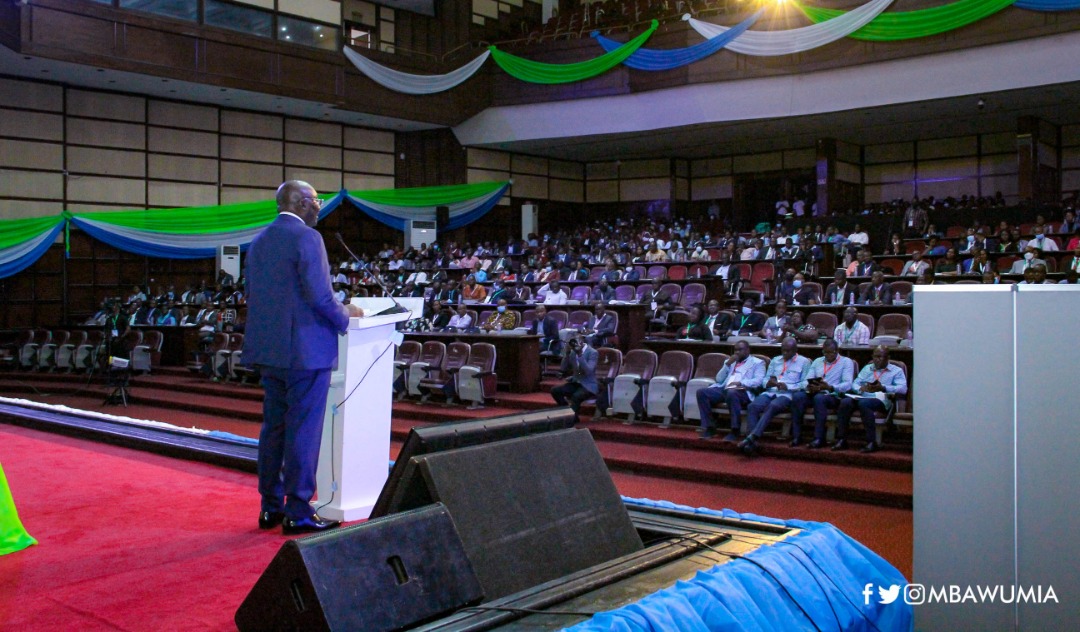PROTOCOLS
- Hon James klutse Avedzi, Chairman, Public Accounts Committee of Parliament and MP for Ketu North
- Mr Emmanuel Johannes, Chairman, African federation of Institutes of Internal Auditors
- The President and Members of the Governing Council the of Institute of Internal Auditors Ghana
- Representative of the the Auditor-General of Ghana
- Board Members, Audit Committee Members and Heads of Institutions
- Internal Auditors and other Delegates
- The Media
- Distinguished Ladies and Gentlemen
- Good morning. It is a pleasure for me to join you at the opening of this conference. I am informed that delegates to this conference are not only Internal Auditors but other stakeholders including Board members, Audit Committee members, Management staff and other professionals. This creates the opportunity for stakeholders to understand and utilize the services of internal auditors.
- Internal Auditors play a critical role in Public Financial Management (PFM) and in protecting the public purse. The Internal Audit profession has evolved over the years. The techniques of internal auditing have changed from a reactive and control-based form to a more proactive and risk-based approach. This enables the internal auditor to anticipate risks and opportunities and provide assurance, advice and insight where most needed.
- As the Internal Audit profession evolves, it is timely to focus on the impact that internal auditors make in their organisations in terms of value addition. I was therefore not surprised when in February this year, during the activities to rebrand the Institute, I heard that the motto of the Institute had been changed from “Progress Through Sharing to “Elevating Impact”. This is a new tagline which is more reflective on the mission of internal auditing: “To enhance and protect organisational value by providing risk-based and objective assurance, advice, and insight”.
- In recent times the battle with the COVID-19 pandemic and the Russia-Ukraine war have brought an unexpected jolt to the global economy. In times like this, nations have to choose whether to remain stagnant, make a U-turn, or brave the odds and focus on moving forward to a greater future and prosperity. It is up to us, who are entrusted with the responsibility to govern to leverage the available competitive advantages to change the existing socio-economic landscape to deal with the current challenges while building systems to prevent or mitigate future setbacks.
- Among others, the auditor has a distinct responsibility to uncover fraud and protect the public from investing in companies that use corrupt business practices or that attempt to defraud investors with false financial statements. The auditor is to:
- expose corrupt activities and risks that may otherwise remain hidden
- keep the public sector honest, transparent and accountable
- help stop dishonest practices and
- ensure that public sector employees act in the public interest.
- The fight against corruption in our contemporary age and time cannot be won by adopting the old-aged tactics of firefighting. People have been shot by firing squad, whipped in public, given jail terms, but still corruption persists. Rather, we should be seen to be doing more prevention than curing. This requires us as a nation to build strong watchdog institutions, without which impunity becomes the very foundation upon which systems of corruption are built.
- Building strong istitutions means putting in place the right systems and practices that ensure transparency and brings about efficiency. With this, although corruption may remain a chronic disease, transpearency will be its vaccine to reduce the rate of spread. As the saying goes, our biggest disease is corruption and the vaccine is transparency. Corrupt people hate transparency.
- In an attempt to deal ruthlessly with the menace of bribery and corruption the greater part of the reign of this government has seen the deployment of technology and digitalization as an anti-corruption strategy. As the conference theme suggests, the world has been going digital and as you might have realized already, under the leadership of His Excellency, Nana Addo Dankwa Akufo-Addo, Ghana has been embarking on expedited programmes to accelerate the digitalisation agenda.
- I would like to draw your attention to where we are as a country in our digitalisation process. We have made tremendous progress in building the digital infrastructure that serves as the bedrock for our digitalised economy as part of the paradigm shift in our economic transformation.
- We approached the building of this digital infrastructure on the key pillars of standardising individual identification using the Ghana Card; solving the address and property systems using GhanaPostGPS; solving under-banking and bringing financial inclusion to most people through a robust mobile money and bank interoperability and digital payment platform; and integration of Government Databases and digitising public service delivery using the Ghana.gov platform.
- Already, we are seeing the impacts of these initiatives including efficient public service delivery by all Ministries, Departments and Agencies on the Ghana.gov portal, combatting corruption by removing the middle-man and “ghost names” in many transactions, bringing more Ghanaians into the formal sector, and driving domestic revenue mobilization, among others.
- Passport Office
- DVLA
- National Service Secretariat audit – Ghs 112 million saved annually – 14,000 ghost workers
- Paperless ports
- E-football tickets
- Motor Insurance database – no mpre fake motor insurance certificates
- NHIS card as Ghanacard
- SSNIT card as Ghanacard
- Tax Identification Numbers increased from 4% to 85%
- Ghana.gov
As a government, we are championing the move towards a fully digitalized economy and there is no going back to the manual and inefficient ways of doing things. Therefore, you could not have chosen a more relevant theme for this year’s Annual National Conference of the Institute of Internal Auditors Ghana than “Elevating Impact in a Digitalized Economy”.
As internal auditors in a digitalized economy, your ability to provide independent assurance that public sector institutions’ risk management, governance and internal control processes are operating effectively depends first and foremost on your embracing and adoption of digital technology. It is critical for those responsible for governance to embrace digitalization for survival and growth.
In tune with the mission of the Institute of Internal Auditors, the internal audit function must be well-positioned to help organizations accomplish their objectives by providing insight and foresight. This must be achieved by adopting the systematic disciplined approach to evaluate and improve the effectiveness of risk management, control and governance.
First of all, we recognize that we can only build a vibrant modern nation if we have strong systems. Therefore, in building our soft infrastructure, for example, we determined that the data created and accessed through our digital channels should not sit in silos but should be fully integrated for easy management, access, mining and to support decision making.
This centralization of data brings with it the need for effective controls to prevent data leakages and system breaches, manipulation, and data loss. Whilst technology provides powerful tools to mitigate these risks, they are only effective under a robust IT governance regime where internal checks and balances are enforced and monitored at the institutions responsible for handling and providing data through digital channels.
Additionally, a digitalized economy has the greatest impact when it is built on strong institutions both public and private. We are very proud of the local Ghanaian IT firms that have helped us build the needed technologies that underpin our digital economy. We need to build on this success by strengthening the digital capacities of our public institutions.
We need, for example, the IIA Ghana to provide us with seasoned professionals who can head these IT governance regimes in our public institutions and support institutional capacity building to enable us deliver on our stated objectives.
Finally, we are able to elevate impact when the citizenry has confidence in the benefits of our digital initiatives. One key attribute of a digitalized economy is the transparency it brings to processes, impacts, and failures for both government and the citizenry to see. We approached our digitalization efforts by benchmarking against the best in the world, and as such, the citizenry holds us to very high standards of performance and impact.
- The independent assurance and advising services internal auditors provide are even more crucial here. Providing the senior levels of government with independent impact assessments on the implementation of the interventions in the digital economy will help us build public confidence, drive adoption and inform future policy interventions.
- The next step in our digitalisation process after building our soft infrastructure is to leverage the derived data for national development. We plan to use artificial intelligence (AI) and machine learning (ML) to derive insights from the data at unprecedented precision to inform our socioeconomic policies and interventions. For example, we were able to broaden our tax base by unifying the multiple identities of citizens or residents into the Ghana card number and use that number as the Tax Identification Number (TIN).
- This instantly took the number of adults with TINs from 4% to 86%. This way, we are able to assess how many people should, who is, or isn’t filing taxes. A lot more useful information can be gleaned from the integrated data. Clearer information provides empirical evidence rather than far-off assumptions, to help us plan for the future and make policies to speed up our attainment of the Sustainable Development Goals (SDGs).
- Whilst we are excited about the insights we can derive by utilizing AI and ML, we are also aware that the quality of the data we feed these algorithms impact the insights they produce. As they say in computer parlance, garbage in garbage out. We need systems and controls to ensure that the data is clean, properly formatted, representative, and correct in order to derive useful insights for national development. We are confident that the IIA Ghana will support us in this endeavour.
- We are also aware of the enormous power that data gives to whoever manages that data and the potential for abuse, conflicts of interest, and discrimination. Data is the new oil and as such must be managed for the benefit and protection of all data subjects.
- We anticipate that as more Ghanaians interface with government through these digital channels, concerns around privacy, data confidentiality, and algorithmic transparency (i.e. how the insights are derived from the primary data), will come to the fore. Instead of awaiting these issues to arise, we have acted proactively by involving the Data Protection Commission from the very start of our digitalisation process. To further strengthen this process, we look up to you to ensure that the data only brings positive benefits to our dear motherland.
- As I conclude my speech, it is my expectation that through digitalisation, Internal Auditors would identify risks and control weaknesses at the speed of the risks and provide timely recommendations and advice to facilitate decision making.
- I also advise Boards and Heads of institutions, both in the private and public sector, to provide the necessary training and IT infrastructure to enable internal auditors add value in the digitalised environment.
- As you continue the rest of this year’s Annual National Conference, I would challenge you all to see yourselves as digitalisation champions in your respective institutions. As I have said before, if we do not digitalise our economy, we may not have much of an economy to speak of in the near future. Digitalisation is here to stay and the Ghanaian economy can only get more digitalised, not less.
- And now, Distinguished Ladies and Gentlemen, I am greatly honored to formally declare the 2022 Annual National Conference of the Institute of Internal Auditors Ghana which is being held here in Accra International Conference Centre duly opened and I whole-heartedly wish you a productive conference.
Thank you.
